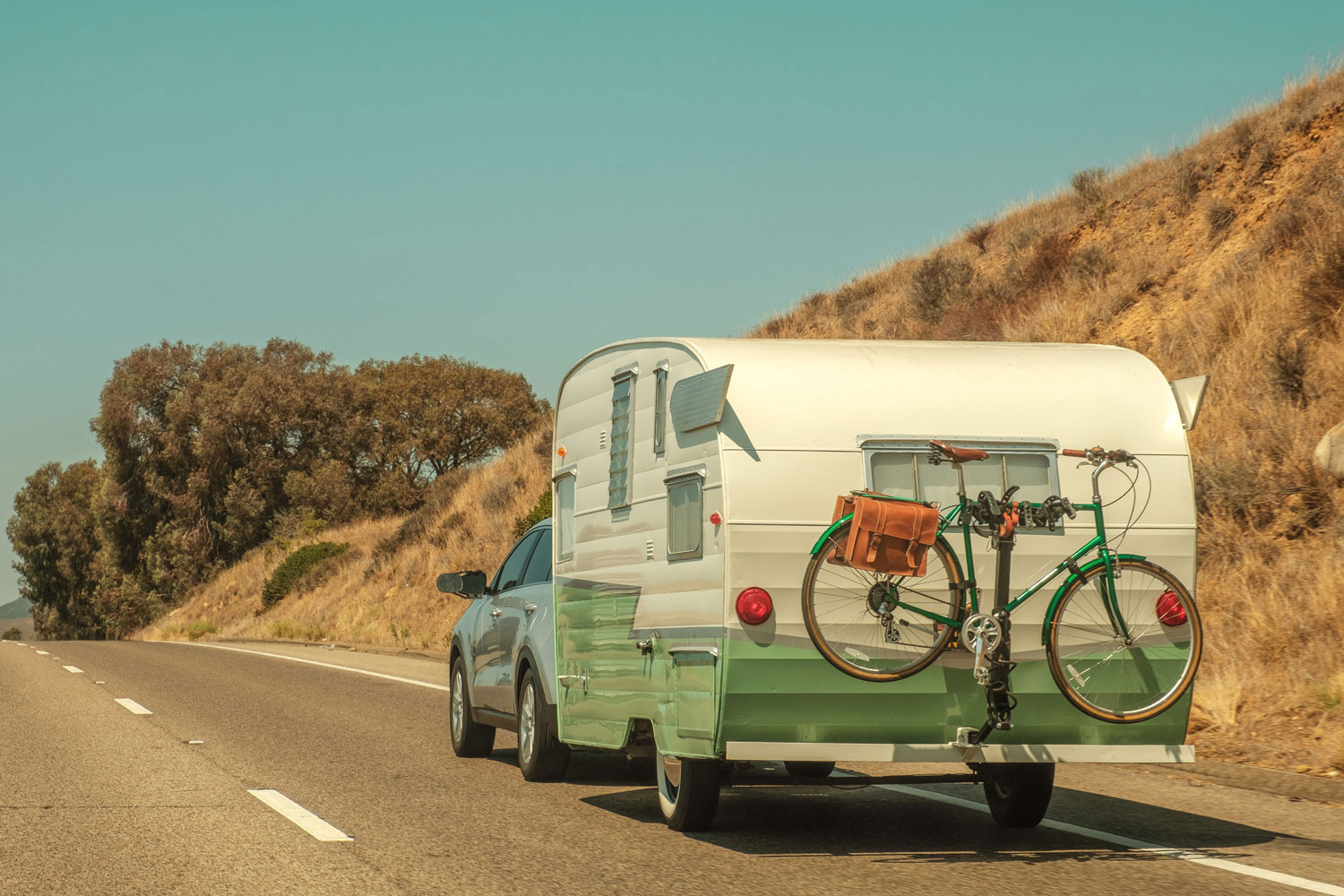When Do Trailers Need Brakes?
It’s simple to focus on a vehicle’s ability to tow a trailer, but stopping it is just as important.
 Getty Images
Getty Images
Should the trailer you’re towing have brakes of its own? The answer isn’t always cut-and-dried.Trailer brakes can help ensure safe and controlled handling. Depending on what (and where) you’re towing, you might also need them to simply remain on the right side of the law.
Why Would My Trailer Need Brakes?
It all boils down to mass. Towing a trailer without its own brake system means your car or truck now has work to stop itself and the trailer — but with no added braking ability. If a trailer is heavy enough, the added mass could overpower the tow vehicle’s brakes. That’s a dangerous situation.
There’s no consistent rule or standard across the country for what size or kind of trailers need trailer brakes. That determination frequently comes down to the gross trailer weight, or GTW — the combined weight of your trailer and everything it’s carrying.
Rules of the Road and Your Vehicle
Your trailer must comply with the laws where you operate it. Unfortunately, trailer brake laws — along with other important trailering rules — vary from state to state. Pennsylvania, for instance, requires brakes on trailers with a GTW of 3,000 lbs or more. Next door, New York requires the same but also mandates brakes on trailers that weigh 1,000 lbs when empty. Some states instead require a vehicle towing a trailer to stop within certain distances.
If you’re not keen on scouring through each state’s regulations for the details, some DMVs publish trailer guidelines online, often in publications targeted at RV owners. Better yet, the Good Sam RV club compiles states’ laws into an annual Rules of the Road page online. When you plan to tow in multiple states you have to do your research, since you’re required to comply with the laws in whatever state you’re in, not just your home state.
Your tow vehicle may have its own trailer brake requirements that are even more rigorous than your state’s. In the towing section of your owner’s manual, you’ll find guidance for when a trailer should have its own brakes.
Types of Trailer Brakes
Trailer brakes (excluding larger commercial trailers) fall into two categories based entirely on how the brakes are applied: surge brakes and electric trailer brakes.
Surge brakes, commonly found on small boat and rental trailers, leverage the difference in momentum between your tow vehicle and trailer. When you slow or stop your vehicle, the trailer’s momentum pushes against its hitch and tongue, which then compresses the trailer’s master cylinder and applies the brakes.
While surge brakes are simple, they don’t offer the driver precise control, and they aren’t easy to retrofit onto brakeless trailers. That’s where electric trailer brakes come into play.
Electric trailer brakes rely on a trailer brake controller on the tow vehicle, which can either be installed as an aftermarket accessory or, on some vehicles, as a factory-installed option. These controllers sense when you’re braking and send a signal to the trailer’s master cylinder, which then applies trailer brakes.
Electric trailer brakes provide additional control. Not only can the driver set how aggressively the trailer will apply its brakes, but most controllers also allow trailer brakes to be applied manually, which can help to control minor trailer sway or to slow gradually on steep grades.
Written by humans.
Edited by humans.
 Evan McCausland
Evan McCauslandCar, truck, train, or bus—if a vehicle has wheels, chances are Evan McCausland is interested in it. More importantly, he’s interested in helping others learn more about cars and trucks, especially when it comes time to make a decision on their next vehicle purchase. For nearly two decades, he’s been fortunate to have the opportunity to do just that, writing for major automotive publications, automotive clubs, and automakers alike.
Related articles
View more related articles